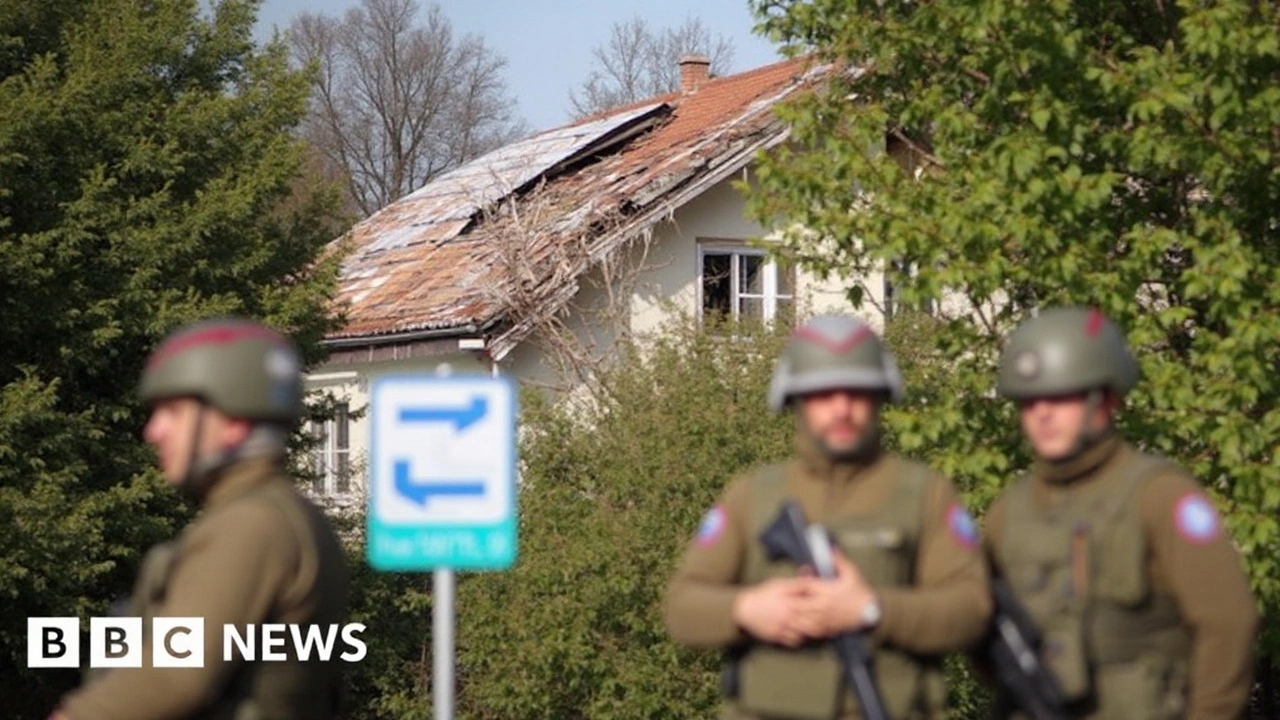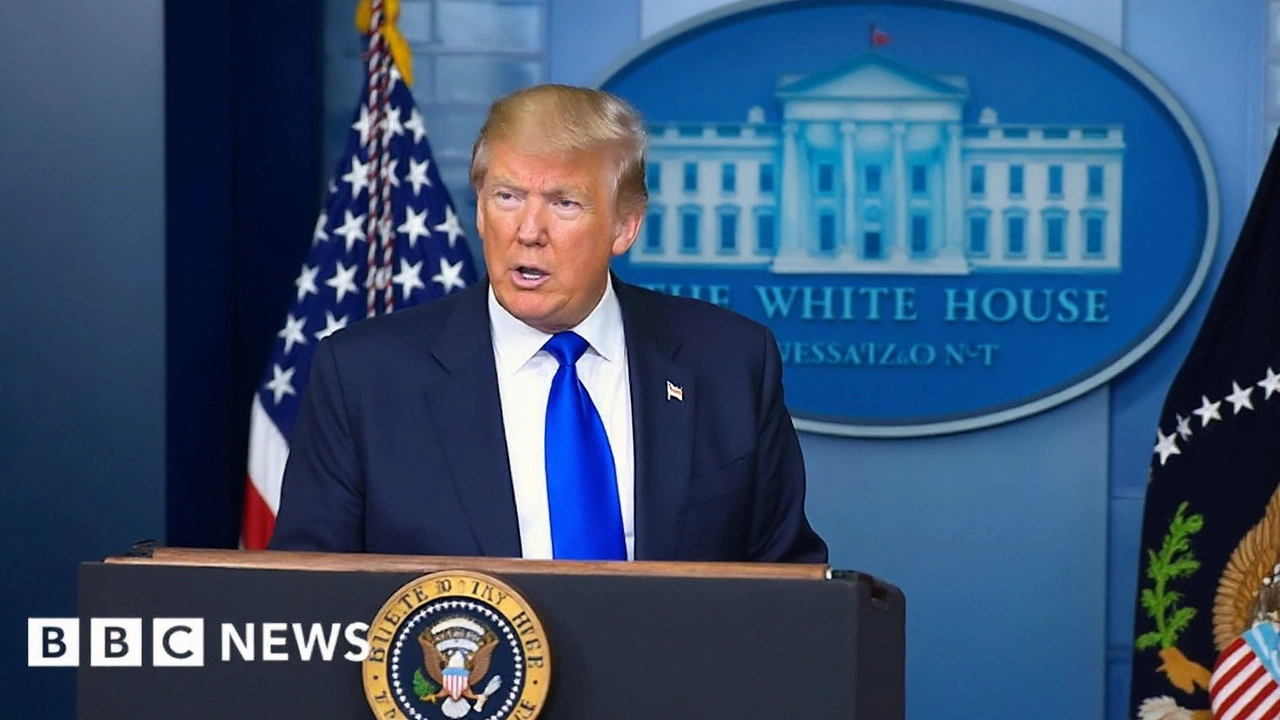What the BBC found
A BBC investigation says armed security at Gaza food distribution points includes members of a U.S. biker group known for anti-Muslim rhetoric. Reporters identified at least 10 members of the Infidels Motorcycle Club working in Gaza for UG Solutions, a private contractor hired to secure Gaza Humanitarian Foundation (GHF) aid sites. Seven of those bikers hold senior roles overseeing operations, according to the BBC’s findings.
The BBC’s report links the security staffing to a broader aid push it says is backed by Israeli authorities and by Donald Trump. The distribution points have seen repeated chaos as large crowds try to reach scarce food, and several incidents have ended in gunfire. Local health officials and aid workers have reported high casualty counts across multiple episodes, with the BBC characterizing the toll as running into the hundreds. The investigation did not claim the bikers were directly responsible for every fatality, but it raises red flags about who is making on-the-ground decisions when panic breaks out.
UG Solutions, reached for comment by the BBC, defended its hiring approach. The company said it does not screen employees based on “personal hobbies or affiliations unrelated to job performance.” The Gaza Humanitarian Foundation told the BBC it enforces a “zero-tolerance policy for any hateful, discriminatory biases or conduct,” and said all staff are expected to uphold neutrality and respect for civilians.
The Infidels Motorcycle Club was founded in 2006 by U.S. Iraq War veterans. Members, based on their own posts and merchandise, cast themselves as modern-day Crusaders. Social media pages linked to chapters and riders have featured hostile messages about Islam, and chapters have previously promoted pig roasts held during Ramadan “in defiance of” the faith. These public signals are at odds with the standards humanitarian groups say they expect from personnel interacting with overwhelmingly Muslim communities in Gaza.
The BBC says it confirmed the identities of the bikers through open-source records, photos, and internal communications. In one exchange reported by the BBC, club leader Johnny “Taz” Mulford told chapter heads not to respond to the outlet’s questions. By hitting “reply all,” he inadvertently exposed the names and addresses of other members—some of whom, the BBC says, were also working in Gaza. A former contractor estimated that roughly 40 of the 320 people hired by UG Solutions for GHF work are Infidels members—about one in eight staff.
None of the groups named in the report provided detailed rules-of-engagement documents or vetting records to the BBC. The lack of disclosure leaves key questions about oversight unanswered, especially as video and eyewitness accounts from several aid lines have documented live ammunition, stampedes, and panicked dispersals when convoys arrive.

Why the vetting gap matters
Security at relief points is not simple crowd control. Guards decide where lines form, how close people can get to trucks, and when force is used. In Gaza, where hunger, displacement, and grief are widespread, those decisions can tip a tense scene into a deadly one. Bias—real or perceived—can make that worse. Putting people with a record of anti-Muslim views in charge of Muslim civilians invites mistrust, fear, and escalation.
Humanitarian work is guided by neutrality and impartiality. Private security hired for aid operations are expected to support those principles. Standard risk management in conflict zones usually includes background checks, local context training, and clear, minimal use-of-force rules. In high-stakes settings like Gaza, contractors often add layers: supervisors on site, independent monitors, and after-action reviews to learn from near-misses. If those steps are skipped or applied loosely, the result can be confusion, conflicting orders, and inappropriate force when crowds surge.
There’s also a legal and ethical angle. The UN Guiding Principles on Business and Human Rights say companies should avoid causing or contributing to abuses and should do due diligence in high-risk environments. For aid groups, donor agreements and insurance often require non-discrimination and documented vetting. Hiring personnel whose public identity centers on hostility to the local population risks breaching both the spirit and, potentially, the letter of those obligations.
The BBC’s reporting suggests that influence within the security chain runs through chapter leaders of a U.S. biker club rather than through conventional contractor hierarchies. If accurate, that would complicate accountability. Who signs off on force? Who reviews incidents? Who signs the incident logs? Those things matter when families ask why a child was shot near a food truck.
Numbers in the BBC report point to scale, not one-off lapses: 10 identified Infidels members on the ground; seven in leadership roles; an estimate of around 40 members—roughly 12.5% of the total security workforce—embedded across sites. Even if every guard had clean criminal records, that concentration of a single, openly antagonistic affiliation in a Muslim-majority setting raises obvious safeguarding concerns.
UG Solutions’ statement that it does not screen for “hobbies or affiliations” cuts to the heart of the debate. Some affiliations are benign. Others signal prejudice or a propensity toward conflict. Where armed roles involve direct contact with civilians, many humanitarian operators argue that social media behavior and public affiliations are job-relevant risk indicators. GHF’s “zero-tolerance” line suggests it agrees in principle, but the BBC’s findings imply a gap between policy and practice.
There are practical fixes if the parties choose to act. Independent vetting can flag high-risk affiliations. Mandatory training can focus on de-escalation, cultural respect, and engagement with community leaders at each site. Clear, written rules on when to display or use weapons can be posted at gates and shared with local partners. Body-worn cameras and third-party observers can document incidents and reduce disputes over what happened. Transparent incident reports—redacted as needed—can restore some trust.
There’s also the question of political endorsement. The BBC says the broader operation has backing from Israeli authorities and from Donald Trump. If political patrons are seen as shaping security more than humanitarian norms, that perception can drive crowds away from orderly lines and toward desperate rushes when trucks arrive. In places where every delivery is a flashpoint, optics are not side issues—they can decide whether aid reaches people safely.
What’s still missing is independent verification. The BBC laid out names, roles, and a hiring pattern. But public access to contracts, site-specific orders, and after-action reviews remains limited. Without that, it’s hard to assess which deaths were tied to security decisions versus crowd panic, who authorized live fire in any given incident, and whether disciplinary action followed.
Key questions now facing UG Solutions, the Gaza Humanitarian Foundation, and the authorities supporting the operation include:
- What vetting was done for armed roles, including social media and affiliations?
- What are the written rules of engagement for crowd control and use of force?
- Who supervises security on site, and how are incidents reviewed?
- How many staff have been suspended or removed since the chaotic distributions began?
- Will an independent investigation examine the deaths linked to these sites?
Families queuing for food should not have to guess whether the person holding a rifle at the gate sees them as enemies. The BBC’s findings don’t close the case, but they put the onus on contractors and their backers to show—clearly and publicly—how they are guarding both aid and the people who come for it.
